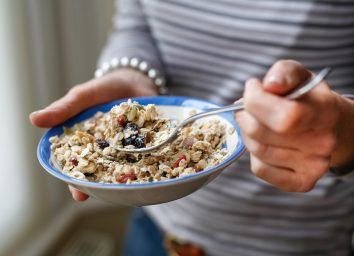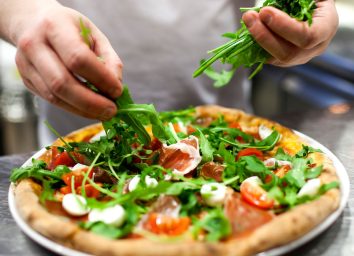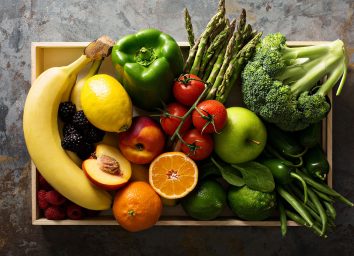5 Simple Diet Changes That Can Help You Lose 10 Pounds
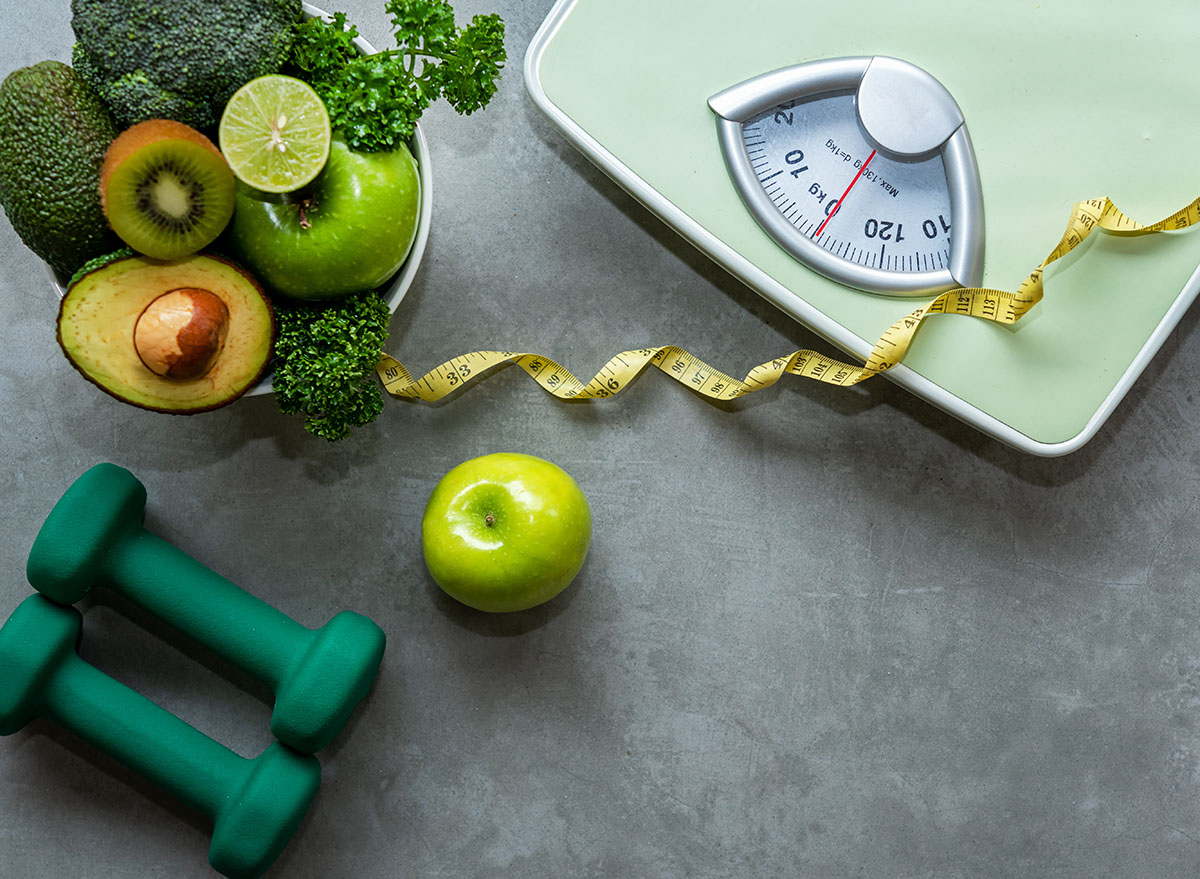
As you probably already know, there are hundreds of different strategies for losing weight. If you find lots of options overwhelming, we'll boil it down for you. Here is our five-finger approach: simple diet changes you can count on one hand that can absolutely help you lose 10 pounds of body weight without making your life miserable.
And if five sounds overwhelming at first, start with just one. According to Rameck Hunt, MD, founder and medical director of an obesity medicine clinic at Penn Medicine Princeton and author of The No Guesswork Diet, making one healthy change can ultimately lead to multiple healthy changes.
It's something he calls One Simple Consistent Change (OSCC): "If you focus on changing one thing in a positive direction it will change the other things that are connected to it in a positive direction as well," says Dr. Hunt. "For example, if you commit to stop drinking soda, that alone will help you lose weight. But the soda drinking is also connected to potato chip eating, so you will likely not eat them either if you're not drinking soda."
So, let's get connected to healthier eating by first pouring out the soda, and then following our next four steps. And for more incentive to nix the sugar water, read Dangerous Side Effects of Drinking Soda Every Day.
Stop drinking sugar-sweetened beverages.
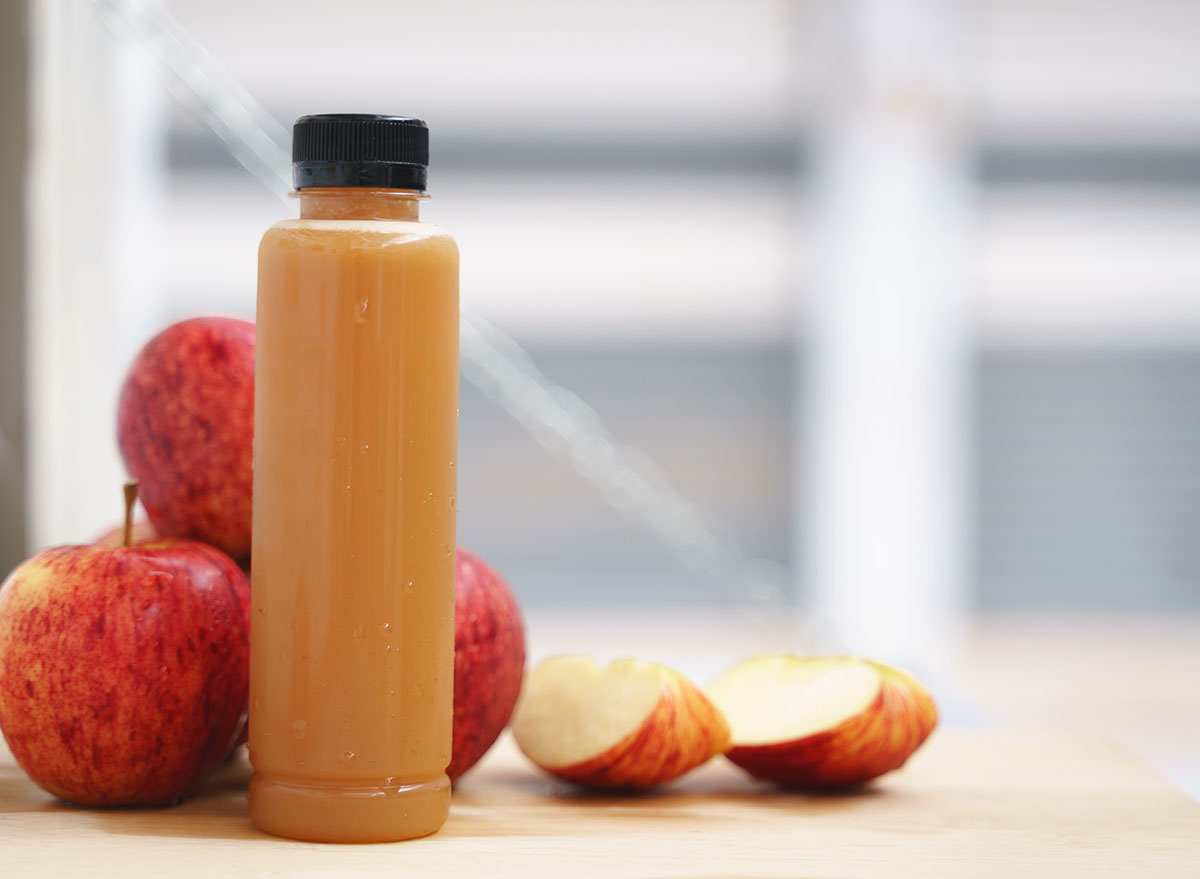
U.S. adults consume 145 calories from unhealthy sugar-sweetened beverages on any given day, according to statistics from the Centers for Disease Control and Prevention. That's just an average. If you drink a sweet tea, a can of Coke, and a glass of apple juice in a day, that adds up to more than 350 calories. Substituting water and unsweetened beverages for those sugary ones daily can save you the caloric equivalent of about 36 pounds of body weight in a year. And studies show a direct connection between reducing sugary beverages and weight loss. "Everything is connected, so focus on one thing you want to change (like drinking soda)," suggests Dr. Hunt. It'll have a ripple effect.
Switch from refined carbohydrates to whole, unprocessed carbs.
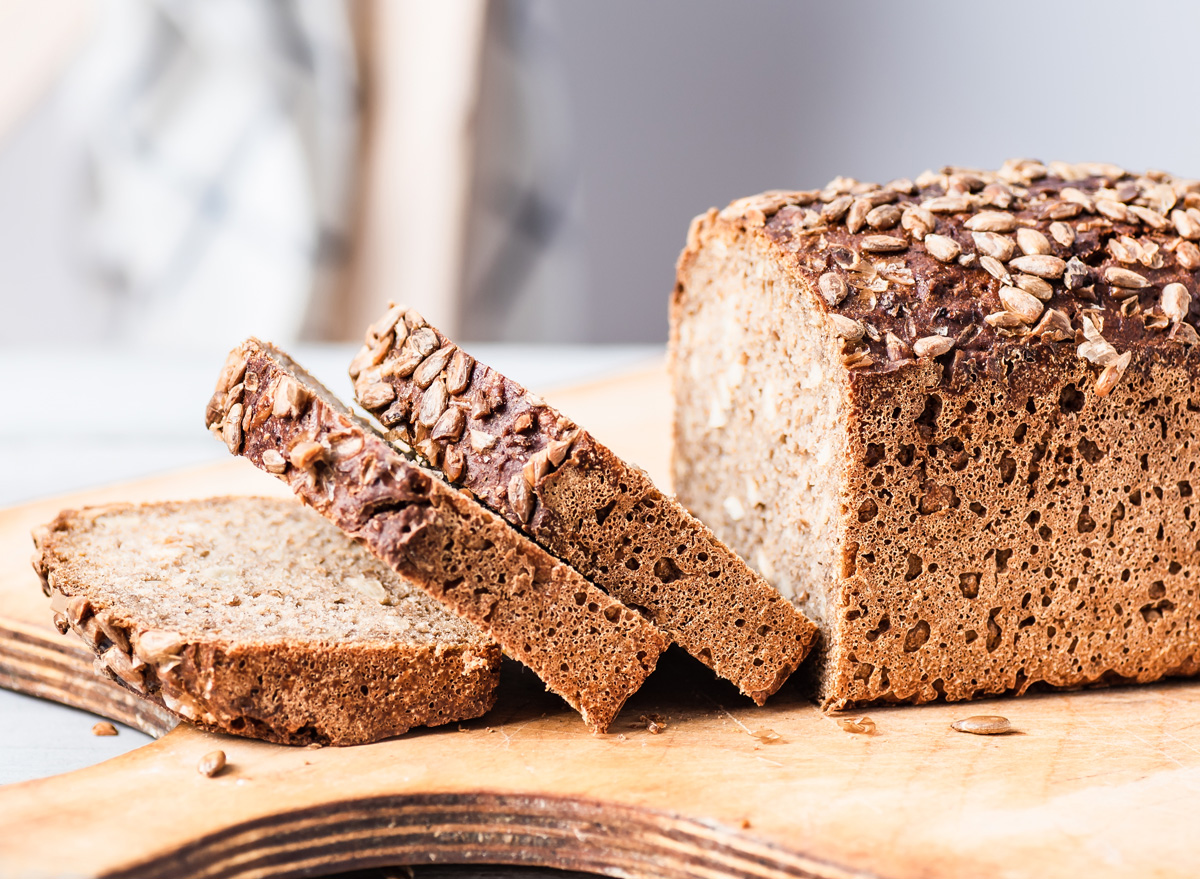
You don't have to give up carbs to lose weight; you just need to adjust the kinds of carbs you eat, a simple change that requires just a bit of mindfulness. First, you have to be able to recognize a refined carb when you see it. Refined carbs are foods that have been highly processed, like most cereals, bread, and other baked goods, juices, and most things that come packaged. The manufacturing process has stripped these carbohydrates of their fiber and a lot of their nutrients. The loss of fiber means they are speedily absorbed by your bloodstream, raising your blood sugar and causing hunger pangs. So, scan nutrition ingredients labels by looking for products made from whole grains, which retain their fiber and nutrients. Choose high fiber, healthy carbs like 100% whole grain bread, brown rice, oats, and quinoa. A Tufts University study in The American Journal of Clinical Nutrition found that subjects who ate whole-grain foods for six months burned an extra 100 calories per day due to their increased resting metabolic rate.
Practice portion control.
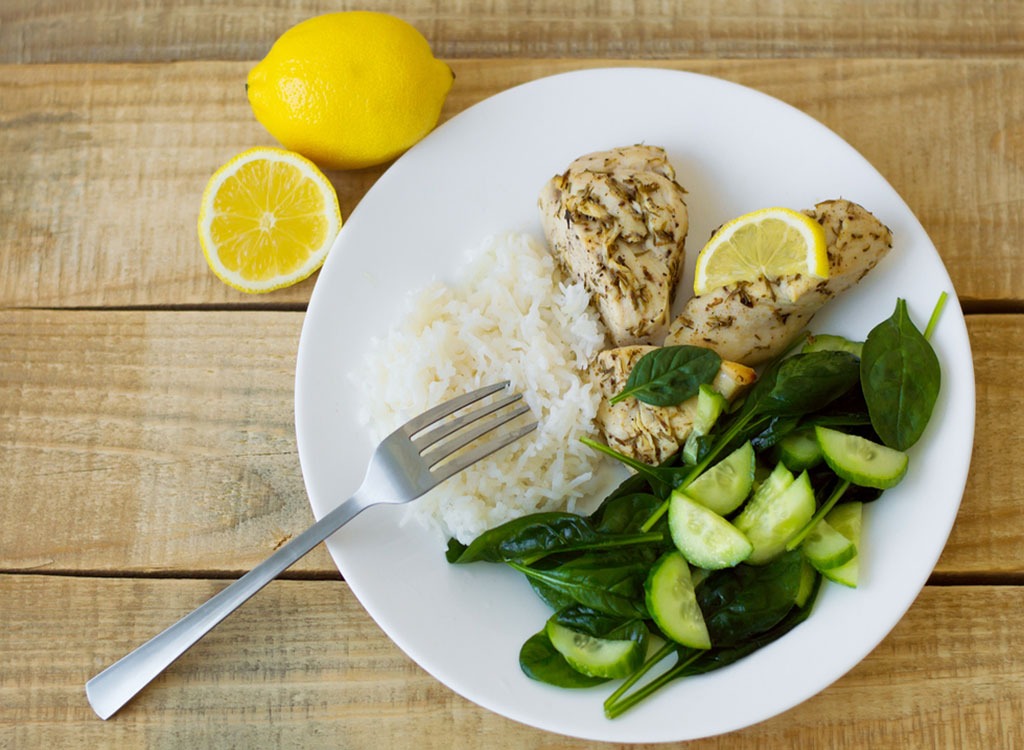
Although there are many, you don't need a clinical study to prove to you that if you are served a large bowl of spaghetti and meatballs, you'll probably eat the whole thing. You've probably done it a hundred times. Or maybe you've taken a third slice of pizza even though you're no longer hungry just because it's there and it tastes so good. Controlling your meal portions is one of the most effective methods for losing weight because it efficiently cancels out hundreds of extra calories that would otherwise go toward fat storage. There are many ways to start practicing portion control. It just takes, well, practice:
- Use smaller dinner plates. Large plates encourage piling on more food.
- Use visual cues: A serving of pasta is about the size of a hockey puck; a portion of chicken or beef is the size of a deck of playing cards. You get the picture.
- Use measuring cups. Plastic containers for various types of food are a big part of weight loss programs like Ultimate Portion Fix by Beachbody's Autumn Calabrese, author of Lose Weight Like Crazy. You simply fill the containers with the amounts of protein, carbs, fats, and other nutrients prescribed by the plan to make sure you don't overeat. For a glimpse at how Calabrese eats, read A Perfect Day of Eating, according to a Celebrity Trainer.
- Eat in courses. "Have your salad first, then the soup, then the main meal," suggests Dr. Hunt. That forces portion control and eating slower. If you eat slower in courses, you will find that you'll eat less, he says.
Go halvsies at lunch and dinner.
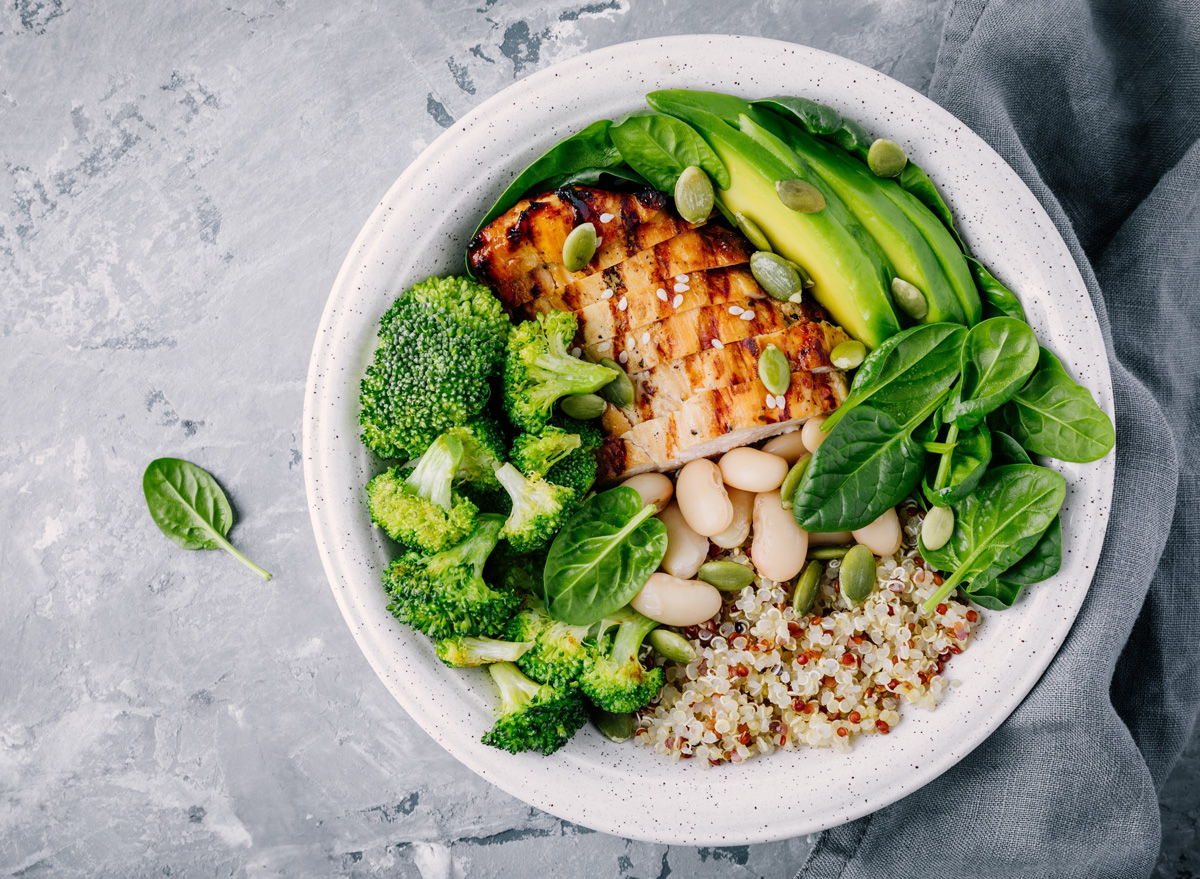
One of the most common and effective tips nutritionists give their weight-loss clients is to fill at least half of the plate with vegetables at lunch and dinner. Why does that simple habit work so well? Because it satisfies your hunger without filling you up with a lot of calories the way high-energy-density foods like pasta, bread, rice, meat, and processed foods do. Vegetables are nutrient-dense and high in water content and fiber. Many studies have shown that high-fiber diets versus low-fiber diets and low-energy-density vegetables and fruits result in weight loss and greater weight regulation. (Related: The Best Low-Carb Vegetables for Weight Loss)
Change from bagels to eggs for breakfast.
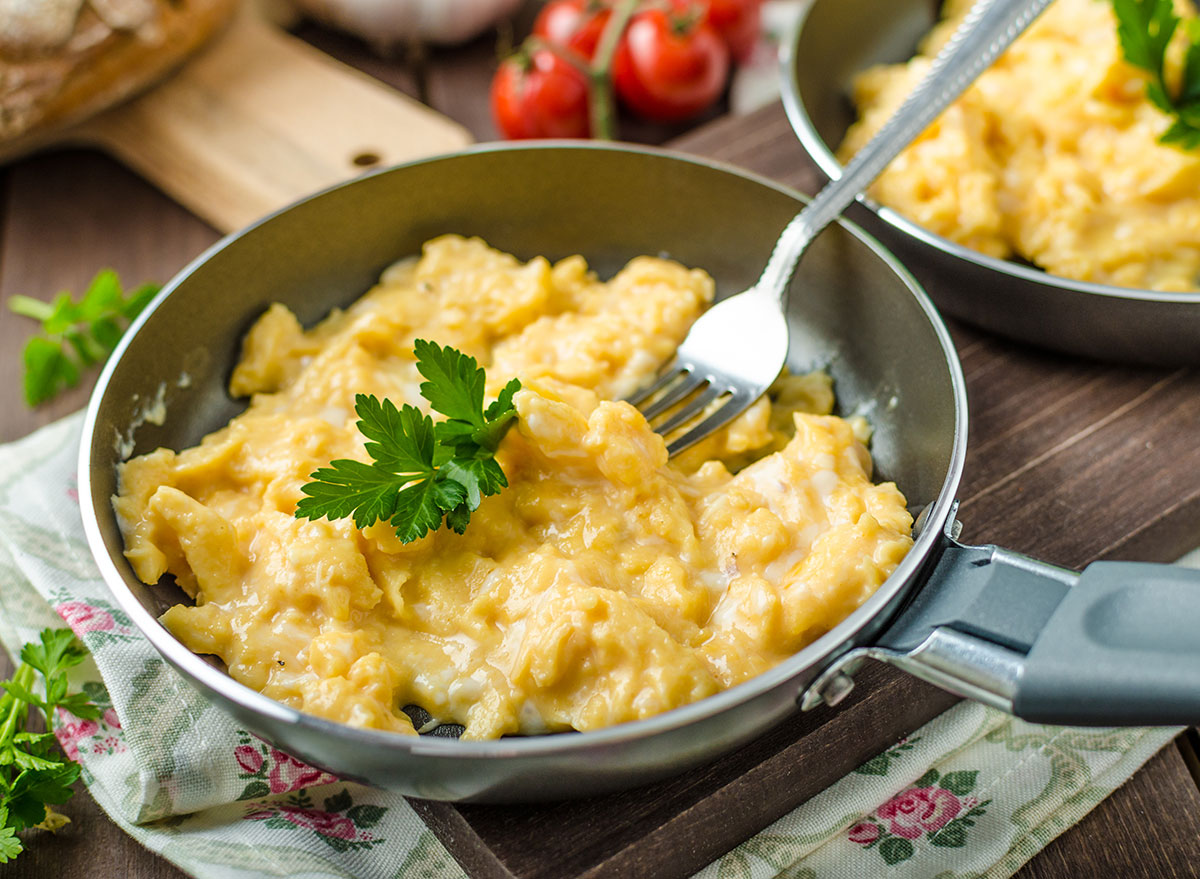
This weight-loss tip isn't breaking news, but it's so powerful, we must include it in our handful of top ways to lose 10 pounds. The ever-popular bagel, toast, or cereal breakfast is not a great way to start the day if your goal is losing pounds. That kind of eating raises blood sugar and leads to a marked drop that triggers intense hunger a couple hours (maybe even sooner) after eating. Protein, however, sticks with you, keeping hunger at bay, reducing the number of calories you might take in at breakfast, and providing the nutrients needed for muscle repair and building. A study in The American Journal of Clinical Nutrition demonstrated that boosting protein to 30% of total daily calories was effective in lowering overall daily calorie intake by 400 calories and body weight by more than 10 pounds. And adding protein at breakfast to your protein at the other two main meals is one of the easiest ways to hit that 30% quota.
"Breakfast is typically the highest carb meal of the day," says Dr. Hunt. "So, swap out that high-carb muffin or cereal for a hardboiled egg, or egg whites and a breakfast meat; remember, fish is a breakfast meat in many countries." For more high protein breakfast ideas, check out 19 High Protein Breakfasts That Keep You Full.
